| Jan 22 |
Archive for the 'Writing' CategoryLong covid, short fictionIt’s been almost a year since I posted anything on my blog. And here’s why: I have long covid, which means that I caught the virus (last March, just before the first lockdown) and that I haven’t got better yet. I’ve spent the last 10 months struggling with exhaustion, brain fog and various chest problems. Because this is such a new thing, no one can tell me how to treat it or when it will go away. But this post isn’t meant to be a medical moan. I just wanted to update you about what I’m doing as a writer, because lovely people have been asking concerned questions, and because I’m not answering tweets or emails very fast at the moment. When I was knocked flat by covid, I was in the middle of writing the first novel of a new trilogy, but I had to put that manuscript back on the shelf in March and haven’t done anything particularly useful to it since. I have very little energy and very little focus, and the brain fog means that I sometimes forget things (like characters’ names, or why they went into an underground chamber, or what the word for that long sharp pointy thing is…) which makes writing an adventure story impossible. However, there is good news. I’m not actually getting any better (still exhausted, still sore, all that boring stuff) but I am getting better at working round the symptoms. So I can now find a sliver of time most days when I have a wee bit of energy and a wee bit of focus, and I’m using that time to write again! (This blog is proof that I am managing sentences again.) But I don’t just want to write blog posts. I want to write STORIES and NOVELS! I’m nowhere near trilogy-writing capacity yet – my head still can’t hold a story which stretches across three books – so I’m being sensible and starting small. I’m working on short fiction. I’m playing with picture books and retellings. I’m not doing much on any particular day, and I’m doing it slowly and cautiously, but I hope that working steadily on short fiction will help me build up my writing muscles again, so that eventually I’ll be able to get back to novels and trilogies and great big magical adventures! So, hang in there, be patient, and there will be book news on my website again eventually! (I’m saying that to myself, as much as to anyone else…) 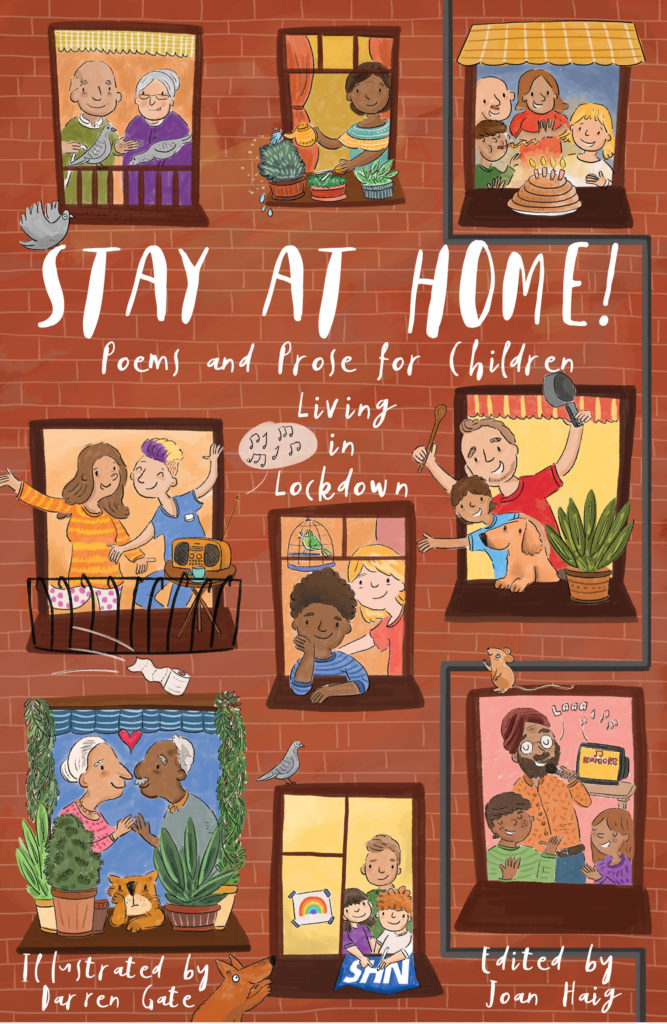 I should admit that this isn’t my first attempt to write short fiction while struggling with covid symptoms. Last spring, when I was confident I would bounce back from the virus in weeks rather than months (or years), I agreed to write a story for Cranachan’s Stay At Home collection of stories for lockdown. But to be honest, I adapted a story I’d already written, and now, several months later, I have virtually no memory of adapting it or submitting it. I’m almost scared to reread it, in case it’s complete rubbish! The rest of the book is lovely though… It’s been a tough year for us all, and I’m sending my best wishes to everyone, because we’ve all faced our own individual difficulties during the pandemic. I hope you all stay well and safe, and I hope we can share stories again together soon. 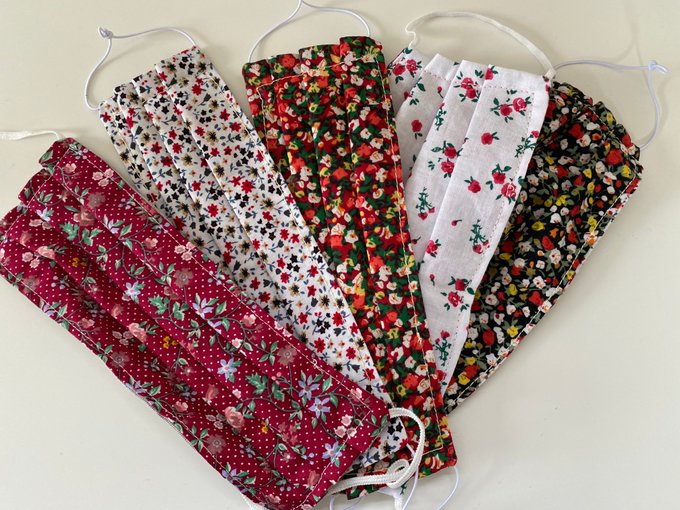 (I’ve tried to be upbeat and optimistic in this post, because I am cautiously confident that I will write books again soon. But as well as an assertion of hope, you can also read this post as a warning about just how serious this virus is, and just how much damage it can do to creativity and career as well as to health. So, please wear your facemasks and follow the restrictions!) |
| Feb 17 |
Archive for the 'Writing' Category1 unicorn + 13 heroines = a busy springI have 2 books being published in the space of a couple of weeks this spring. The Legend of the First Unicorn – a picture book about the origins of Scotland’s national animal, written by me and illustrated by Nataša Ilinčić – comes out on 20 Feb (though most of the launch excitement will be around National Unicorn Day on 9 April.) 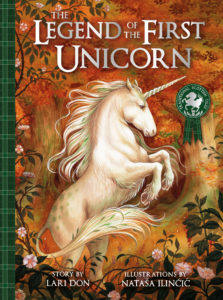 Fierce Fearless & Free – a collection of traditional tales about strong girls defeating their own monsters and solving their own problems, retold by me and illustrated by Eilidh Muldoon – comes out on 5 March, just before International Women’s Day on 8 March . 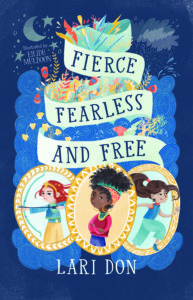 So why does that add up to a busy spring? I’ve already imagined, pitched, researched, drafted, written, edited and proofread the books. Surely I can just move onto the next book now? Well, not really. It would be a bit daft to put all that work (at least a couple of years’ work, for each of them, in amongst writing novels…) into any book, and then not bother to tell people about it! So, over the next few weeks and months I will be: appearing at various festivals doing author events and signings in bookshops visiting schools writing blog posts writing articles doing radio interviews and spending slightly too much time on Twitter … All to share my excitement about the books, tell people about the books and perhaps encourage people to buy the books (though remember you can borrow my books from libraries for FREE…) And it’s all very time-consuming, especially when I have a deadline for the next novel (shh, I’m not allowed to tell people out it yet!) later this spring. But it’s also great fun. I love sharing stories, and seeing readers’ reactions to new books. I hope to meet some of you at events (check out my diary…) or hear feedback about what you think of the two new books! |
| Sep 16 |
Archive for the 'Writing' CategoryThe magic of working with an illustratorI always discover something new at the Edinburgh International Book Festival. But not usually about my own books! I did an event with the lovely Sara Sheridan about our two different picture books based on the same monster – Nessie. We both intended to start the event with a short visual presentation about how our books were created. But my writing process is mostly scribbles on bits of paper, which isn’t that compelling visually. So I asked the illustrator of the Treasure of the Loch Ness Monster, the amazing Nataša Ilinčić, if she had any pictures of her creative process I could show, because her process is obviously more visual than mine. I expected a few sketches of Nessie’s evolution, as Nata worked the shape and character of the monster, and perhaps some sketches of her background research. She did send those, and they were fantastic. But she also sent a few photos which just blew my mind. I discovered that when she was sketching the treasure chamber under Castle Urquhart, she actually built a 3D paper model of the chamber! Look… She didn’t just sketch the treasure chamber. She MADE it. Then she put it in front of a window to get the light and the perspective right, in the sketch, then in the illustration. Isn’t that amazing? Isn’t that just so… magical? But also, really practical! I feel overwhelmingly privileged that Nata put so much effort and thought and creativity into just one page of our book! So, that’s what I learnt from this year’s book festival. Nataša Ilinčić is practical and magical and amazing. And we can never know how much work goes on behind the scenes of a picture or a scene or a chapter of a book… I’m delighted to let you know that Nataša is currently working on the illustrations for our next book together: The Legend of the First Unicorn. I wonder what practical magic she’s building in her studio right now? |
| Jul 06 |
Archive for the 'Writing' CategorySEARCHING FOR THE STORYOne of the greatest pleasures of writing adventure books set in the Scottish countryside is researching locations: up hills, on beaches, and in lots of beautiful bits of Scotland. But I don’t just go for a wander somewhere pretty! I visit potential locations to find out what’s there, but also to imagine what isn’t… For the Fabled Beast series, I mostly researched locations I already knew from family holidays, like the Ring of Brodgar and Dunvegan Castle, or well-known tourist locations that were easy to find on the map, like Smoo Cave and Dunadd fort. For the Spellchasers trilogy, I revisited woods and rivers and hills and moors that I knew from my Speyside childhood, and looked at them with a writer’s eyes, which was a slightly odd experience. However, for my new series (which doesn’t have a name yet, and I can’t give away any spoilers – mostly because I’m not sure what happens in the end myself…) I’m mostly setting the action in places I’ve never been before, and often choosing to visit places that aren’t well-known, and aren’t always marked on a map… So I might think: I want to defeat this monster, where could we do that? And after a bit of research I find an ancient poem hinting at a mysterious weapon used at a real historical battle, and decide to visit the site of the battle… Or I might think: I want to write about that magical creature, where might she live? I know, perhaps she lives near the childhood home of my favourite folklorist… Or I might say: I love that really obscure fairy tale, I wonder if I can find the (non-existent, magical) hill that fits the story? So it’s like magical geographical detective work, with a fair bit of research and map-reading before I go. And when I get there, even if I can find the right location, it’s never exactly how I’d imagined it… I’m discovering lots of bits of Scotland I didn’t know very well before, and lots of potential locations with historical or folklore connections which I think will be really exciting to write about. Because that’s the point – I do all this research in order to write the best story I can. I visit all these places hoping to imagine new ways to use magic and ambushes and battles and surprises. I sit on rocks or walls or tree stumps, letting the landscape suggest new and exciting ‘what happens nexts’ for me to write, and new and challenging questions for me and my characters to answer. I don’t tend to take photos of locations, because I reckon that if I can’t find the words to describe them when I’m actually standing there, I’m not going to be able to do it when I’m sitting at my desk looking at a photo. But my very helpful location research quest team member and driver sometimes takes pictures of me while I’m scribbling:
Me on a windy rainy hilltop in Annandale. (Having foolishly left the new waterproof notebook in the car, at the bottom of the hill.)
My temporary desk on a sunny day in Angus. I remembered the waterproof notebook (that’s it on top of the OS map) but didn’t need it…
But it’s not just about the where, it’s also about the when. It’s all about the right time of year. I often visit a location at completely the wrong time of year, because I’m writing it at the wrong time of year… The book I’m writing right now is set in early July, ie right NOW, but I’ve been writing it since the start of the year and will be writing it until the end of year. However, I’m trying to do as much of the location research as possible at exactly the right time.
But fitting all this research into the few days when the story happens, means that I have to research the scenes in the wrong order. One day this week, I spent the morning researching the location for the battle at the end of the book, then in the afternoon, I visited the village where the main character first meets the baddie, a scene which happens several days and many chapters before that battle. It’s a bit like time travel… But it’s great fun, and I hope it means that my stories feel real and convincing to anyone who is familiar with the locations of my battles and quests. Also I’m sure that I come up with original and spontaneous ideas when I’m standing on rainy beaches and windy hilltops that I would never imagine sitting at my calm dry desk… So, now I have lots of inspiration. All I have to do is write down all the ideas. In roughly the right order… I hope you have a great summer, finding locations for your own adventures! And here is a bonus baby roe deer that I met while researching last week. (At least, I think it’s a roe deer – happy to be corrected!)
|
| Dec 14 |
Archive for the 'Writing' CategoryStories Inspired by WinterI love winter. I love frost-patterned windows, ice-rimmed leaves, brisk cold air, seeing my breath ahead of me, and wearing hats and gloves and scarves. I’m definitely a winter person rather than a summer person. My love of winter inspires my books. For example, I’ve written a collection of winter tales from around the world, with lovely crisp silhouette illustrations by Francesca Greenwood. I loved researching this book, and discovering how winter is viewed in different cultures. In some (colder) parts of the world, winter is the baddie, killing the friendly warmth of summer; in other (hotter) areas, winter is the goodie, saving people from the vicious heat of summer. Also I got to retell stories about wolves, polar bears, eagles, reindeer, trolls, and the only really positive story I ever tell about spiders.
Winter inspires my fiction too: I’ve set a couple of my Scottish adventure novels in cold Scottish winters. First Aid for Fairies is set around the winter solstice, though in keeping with my experience of most Scottish Decembers, the weather during Helen’s first adventure with the Fabled Beasts is cold and wet (including raining on one of Helen’s violins!) but not actually snowy.
The final book of the Spellchasers trilogy, The Witch’s Guide to Magical Combat, is set in February, which is often colder than December, so I wrote a fight scene set in a blizzard, with sharp snowflakes used as weapons again Molly, Innes and their friends. And this book has a beautiful icy blue cover!
Even though my other novels are set in spring, summer and autumn, I often do my location research in the winter, during the Christmas or February holidays. So when I was researching Storm Singing (which is set in the autumn) I was trapped in the snow on a steep road in Sutherland. And when I was researching Maze Running (set in spring) I was nearly blown off a cliff during a winter storm, and I dragged my kids up a hill on a freezing cold Christmas Eve to time how long it took a flower to float down seven waterfalls. (They have never entirely forgiven me…) So when I reread those books, I’m always reminded of winter! Of course the best thing about winter isn’t the weather outside, it’s curling up inside, with a warm blanket and perhaps a purring cat and a hot drink, to read a shiny new book. I hope to do lots of warm reading this winter. But I will also be researching and writing more books over the winter months. And I’ve just realised that my current books are set in spring, summer and autumn. It’s definitely time to come up with some new wintry story ideas! |
| Nov 12 |
Archive for the 'Writing' CategoryWriting what happens next, even when I have no idea what’s going to happenI’m re-reading the early chapters of the novel I’m currently drafting, and I found these notes at the top of one of the chapters: “My team are at the shore, and fend off one attack (probably not by the big bad, not yet). So, an initial attack. By what, I’ve no idea; fended off how, also no idea.” And that is how I write my novels. (Honestly, it’s a miracle I ever get anything published.) This is what those notes tell me: I knew there was going to be a fight. I knew the attack wasn’t by the major villain, because I didn’t want to give away their identity this early in the story. I also knew I needed my main characters to win the fight. But I had no idea who attacks them, and no idea how they win. And the really interesting thing is, I leapt into writing that chapter with no fear or trepidation at all. (And I’ve just been reading over what I wrote, and I’m really happy with it.) I should clarify, these were not notes I made months. weeks or even days before I wrote this particular chapter. These are the notes I made on the morning I sat down to write it. I had no idea what I was doing in this scene. But I wrote it anyway. So how did I go from “ I have no idea, x 2 “, to a couple of thousand words of fight scene? I did it by the power of questions! Because this is what I wrote next: Q – Ok, if it’s not the big bad, who is it? Q – Is it someone he sent? Q – Is it someone he has paid or persuaded or compelled? How will that affect how they fight? Q – Is it one monster, or a gang? Q – If it is a gang, what could that gang be composed of? A – Probably needs to be at least one opponent for each of my team. And the opponents need to be powerful enough that we are worried our team might lose, but not so powerful that they DO lose, or indeed that they get so badly injured we can’t move to the next scene So, we could go for…. And that’s when I started listing various magical creatures and their relative strengths, and working out how many baddies was enough to possibly defeat my team, but not quite enough to definitely defeat them. And that’s where it all becomes secret and confidential and I can’t tell you any more! But that’s a very brief explanation of how I go from ‘I have no idea’ to a story. I ask questions. And I write the answers (often in the form of lists or indeed other supplementary questions.) There are probably faster, simpler, less convoluted ways of writing a novel. But this is the way that works for me! It’s also the way I enjoy writing… Stories are all about what happens next, so finding out what happens next by sitting down and writing it, discovering the story as I type, feels perfectly sensible to me! If you want to know what novel I’m writing – I can’t say yet. Though as you can tell, it does have monsters and magic and fights. And all going well, it might be out in a couple of years’ time. So, if you’re ever stuck in a story, and don’t know what happens next, don’t worry! Just ask the story a few questions! |
| Mar 13 |
Archive for the 'Writing' CategoryFirst Aid for Fairies is 10 years old!It’s exactly 10 years today since the launch of my first novel First Aid for Fairies and Other Fabled Beasts. It’s very odd to realise that I’ve been now a published author for 10 years; that writing has been my job for 10 years; that I’ve been turning up at book festivals and schools to talk about writing, as if I knew what I was doing, for 10 years. It’s even odder to realise that, nowadays, I am often talking to readers who weren’t BORN when my first book was published! The launch of First Aid for Fairies 10 years ago was the start of my journey as a children’s writer. And what a journey! Not just for me, but for the book too. It has had three covers, over 10 years! Which cover is your favourite? For a long time (even after the new covers came out) mine was the second one – the green one with the silhouettes – but now I think I like the magic of the most recent cover best. When First Aid for Fairies was first published, with the hairy paw and pink fairy on the cover, I had no idea that it would be popular enough for long enough to justify other covers, nor that there would ever be any other books beside it on the shelf. I did hope to have other books published, but I knew nothing was guaranteed in publishing. However, the first book did well (won the Scottish Children’s Book Award, sold a respectable number of copies) and readers wanted to know what the characters did next, so I wrote another one – Wolf Notes – which raised a few questions that I wanted to answer in more books, so I wrote a third then a fourth. So that first novel become my first series: The Fabled Beast Chronicles. The third book also prompted a question about the magic of curses, which led to the Spellchasers trilogy. The contacts I made while promoting the first novels led to contracts with other publishers. The research I did into folklore, myths and legends in order to write the novels led to retellings and collections. And the fact that I was now spending all day (and most nights) thinking about stories, some of which didn’t fit the same age group as First Aid, meant I started to experiment with picture books and YA. So over the past 10 years I have published 29 other books… And it was First Aid for Fairies that started it all, exactly 10 years ago. That book launch was the start of me becoming a freelance writer, the start of all the school events, book festivals, award ceremonies, tours, workshops, blog posts and an endless cycle of deadlines. First Aid for Fairies and Other Fabled Beasts was the start of a pile of novels with ridiculously long titles. But most of all, it was the start of me having the wonderful freedom to lose myself in adventures every single day, and call it work. If I hadn’t written about Helen and Yann, I might never have written about Molly and Beth or Pearl and Thomas or Ciaran and Lucy (or indeed the characters I’m writing about now, who may or may not be called Ailsa and Ninian…) I have learnt a great deal over the last 10 years, about writing and about being a writer (those are two different things), but I also feel that I don’t yet know nearly enough. So I will keep learning, and keep writing. It’s been 10 years, and I’m still making it up as I go along… I love every single one of my books; I have challenged myself and stretched myself in different ways for each book I’ve written. But only one book can be my first book. Only one book can be the one that started it all. So today I want to remember the glorious moment that I had the idea for First Aid for Fairies and Other Fabled Beasts (ooh, what about a vet who only treats magical creatures… or, no, make it a vet’s daughter, and what magical creatures would she treat, and what injuries would they have, and what adventures might they have been on to get those injuries… ) and the joy of discovering as I wrote that this was an idea with enough strength to support a novel (then a series) and the amazing moment that a publisher agreed to publish it (after it had lost a competition), and the nervous excitement of standing up in front of all my friends and family to launch it. Exactly 10 years ago! And today I want to thank Helen the violinist, Yann the centaur, Rona the selkie, Lavender the flower fairy, Sapphire the dragon, Catesby the phoenix and the Master of the Maze, for setting me on this fantastic path. Also, I want to thank the wonderful Floris Books, who published my first book 10 years ago, and will be publishing my 31st book in 10 days’ time. (And perhaps more in the future…?) And thanks to my agent Lindsey Fraser, who had faith in Helen’s story before anyone else read it, and who has given me wise advice to keep the stories flowing ever since. Also, thanks to all the booksellers, librarians, teachers, book festival organisers, Scottish Book Trust magicians and everyone else who has put First Aid for Fairies in front of kids for the last 10 years. And of course – thanks to all the readers whose enthusiasm about the Fabled Beasts’ adventures gives me the energy to keep writing. (With all those thanks, this post is starting to sound like a speech at a launch party!) How will I celebrate today? I could bake a cake, and put 10 candles on it. I could sit on the couch and reread Helen’s first encounter with a centaur. Or I could get on with the job I’ve had for 10 years, and just write the next chapter of the next novel… Guess which of those I’m most likely to do? |
| Mar 03 |
Archive for the 'Writing' CategorySearching for The Treasure Of The Loch Ness MonsterIt’s March, and I have a new book out this month! I’m really excited about The Treasure of the Loch Ness Monster. It’s a picture book inspired by traditional Loch Ness folklore, with wonderful illustrations by the amazing Natasa Ilincic. I admit that this is not a book I ever thought I would write (though I could say that about most of my books!) I’ve lived near Loch Ness, but I’ve never seen a monster there, and I’m not sure I’ve ever believed in a monster either. But I do believe in the power of stories. And I’m a big fan of questions too… Does Nessie exist? If she did exist what would she look like, what would she care about, what would she want, what would she prepared to do to get it? If you met Nessie how would you react and what would happen next? (These are the sorts of questions I ask about all my characters, whether they are huge and green or not.) I’ve had the opportunity to explore all those questions and more in this picture book. I also did lots of folklore research, which I love. This book is a companion to The Tale of Tam Linn and The Secret of the Kelpie, as part of Floris Books Traditional Scottish Tales range, but it presented very different problems.
But as soon as I started to discuss a Nessie book with my wonderful editor, Eleanor, I banged up against one great big monster-sized problem. There isn’t a Nessie myth or legend or folktale. There is an old story, from more than a thousand years ago, about a saint driving away a water monster in the loch, but that monster had just eaten a local man, so I don’t think that’s the Nessie we know and love. There are lots of glimpses and partial sightings of Nessie, lots of rumours and mysteries about her. But there is no authentic, full-length, story-shaped traditional tale.
And that’s when I had a story. A mysterious monster, a dangerous treasure? Both of those were great. But it wasn’t until I met Ishbel and Kenneth that I had a story I wanted to tell. I also met Natasa. (She’s real: I met her in a café; Ishbel and Kenneth aren’t real: I met them in my head.) Natasa is a wonderful, magical, wise artist. She has created a classically beautiful Nessie, but also given Kenneth and Ishbel all the character and cheekiness and courage that I could have hoped for. (And she has created the most amazing treasure chamber ever!) And you don’t have to wait very long to meet Natasa’s Nessie, go on an adventure with Ishbel and Kenneth, and find out all about The Treasure of the Loch Ness Monster! The book is published on the 22nd of March, and you’ll be able to find it or order it in all good bookshops and libraries. And I’d love to know what you think of it!
|
| Jan 14 |
Archive for the 'Writing' CategoryAsking the writer awkward questionsI ask my characters difficult questions all the time: ‘how are you going to get out of this trap, how are you going to defeat this monster, who do you trust, what kind of magic user do you want to be…?’ So I thought it would only be fair to let the main Spellchasers characters ask me a couple of awkward questions in return. (nb – I’ve tried not to give away too many spoilers, but if you don’t like to know too much about a book before you read it, you should probably read the Spellchasers trilogy before you read this post) Molly Q – Why did you choose to turn me into a small vulnerable hare? Q – Why did Beth dislike me so much when she first met me?
Q – Why are you so negative about kelpies eating their natural diet of human beings? Q – Am I the hero of this story? I’m the best warrior, so I should be the hero! Q – Do I ever get to beat Molly in a race? Beth Q – Why are you so obsessed with dark magic, and with characters who use dark magic? Q – You feel sympathy for the witch who burnt my trees, don’t you? How dare you take her side rather than mine?
Q – Why do I have a job, when all my friends get to go to school and take holidays? Q – And why do I work at a distillery? The toad / Theo Q – Innes shifts into an elegant powerful horse; I transform into a clumsy warty toad. That doesn’t seem fair. Q – Why do you keep denying me the chance to use my full magical powers?
Q – I joined the story really late, so am I a member of the Spellchasers team or not? I don’t get my symbol on the cover. Q – Why are you so cruel to your characters? You always take away the thing that means the most to them, like my wings. A shorter version of this post was put up on the Discover Kelpies website during the Spellchasers blog tour in October, and some of the additional questions above came from our request for even trickier questions! I’d be happy to add more awkward questions if you want to suggest any! Possibly a few questions from the baddies? (And if you liked these awkward questions from the Spellchasers characters, you might enjoy this set of difficult questions from Helen, Yann and the other Fabled Beast characters) |
| Jun 19 |
Archive for the 'Writing' CategoryBye Bye Spellchasers! Right, what’s next…?The final book in the Spellchasers trilogy has now gone to the printers. I can’t make changes to it, ever again. I can’t change the little things, like commas, and I can’t change the big things, like who wins the battle at the end. The book is finished. It’s not mine any more, it’s very nearly yours instead. (The Witch’s Guide to Magical Combat is published in mid-August, and if you want to hear me chat about it before it’s even in the shops, come and see me on the first day of the Edinburgh Book Festival. And if you want a really early copy, check out this competition.) I feel sad. This trilogy has contained lots of my favourite characters, and lots of my favourite magic, chases, and fights. I might never write about Molly, her friends and her enemies again. I’ll read the books out loud at author events, but I won’t be able to change the outcome, or tweak the dialogue, or suddenly change my mind about a moment of magic. So, saying goodbye after years of writing this trilogy is sad. But I also feel relieved. Writing a trilogy has been a huge challenge, much harder than anything I’ve ever written before. and I got to the end! And I think it worked! (Though honestly, I won’t know if it really has worked until I hear from readers…) And I’m exhausted. Writing three novels containing four stories (one story per book, and one story arching over the whole trilogy) has been extremely tiring. I’ve had to hold the whole story – more than 150,000 words – in my head at once, which hasn’t left much space for anything else! And publishing the books at six monthly intervals has been an interesting and energy-sapping experience… But I’m also excited! I’m excited because I want to know what you think about how I decided (or how Molly decided) to end the story. I want to know what you think about the new characters I introduce in Witch’s Guide. I want to know what you think of the biggest battle I’ve even written. (Actually, maybe I’m nervous about all of that, rather than excited…) But there’s something else I am genuinely excited about: What’s next? This trilogy has been the main story in my idea for years. For YEARS. And now it’s finished. So, what will I write next? That’s not an easy question to answer. I’ve spent more than 4 years writing and editing the trilogy. I’ve never spent less than a year on a novel. So whatever I decide to write next will be a huge chunk out of my life. And whatever story I decide to write next, that decision will mean not writing lots of other ideas. So it’s a very hard decision to make. I have lots of ideas for novels. Some of those ideas arrived in my head years ago, and have been waiting patiently for me to finish the Spellchasers trilogy. At least one idea arrived while I was editing Spellchasers (just like the idea of a curse-lifting workshop rose out of a subplot in the Fabled Beast Chronicles). And I’m planning to allow myself a few months free of deadlines, in order to simply read and think and play with ideas, so perhaps the perfect idea hasn’t yet arrived in my head. There are lots of things I love about writing (and this bit – finishing a story, and passing it on to readers – is one of the best bits.) But my favourite thing of all is the process of an idea coming to life: a story starting to grow and develop and spark and bounce and fill my head. The first few pages of a new book, the first few lines in a new character’s voice. The first time I see the journey ahead, the paths that this new story could take me down. I love finishing books, but I love starting new ones even more. So ‘what’s next?’ is never an easy question. But it is the most exciting one. Ultimately, I always end up writing the story that demands to be written, about the characters who just won’t leave me alone. So, I think I’m going to sit quietly now, and listen, and find out what story is shouting the most interesting questions in the loudest and most intriguing voices… In the meantime, if you want a chance to read Witch’s Guide before anyone else, here’s a competition to win an early copy.
|
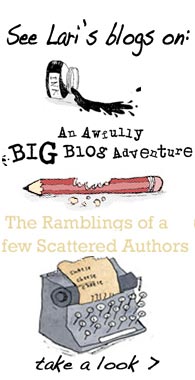
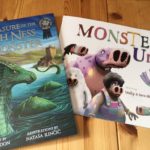
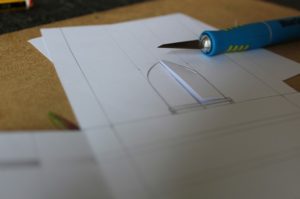
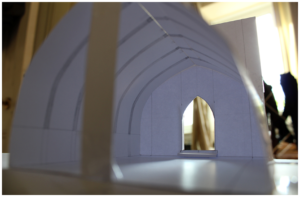
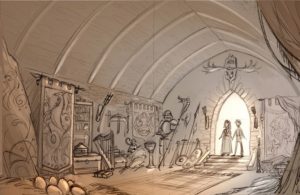
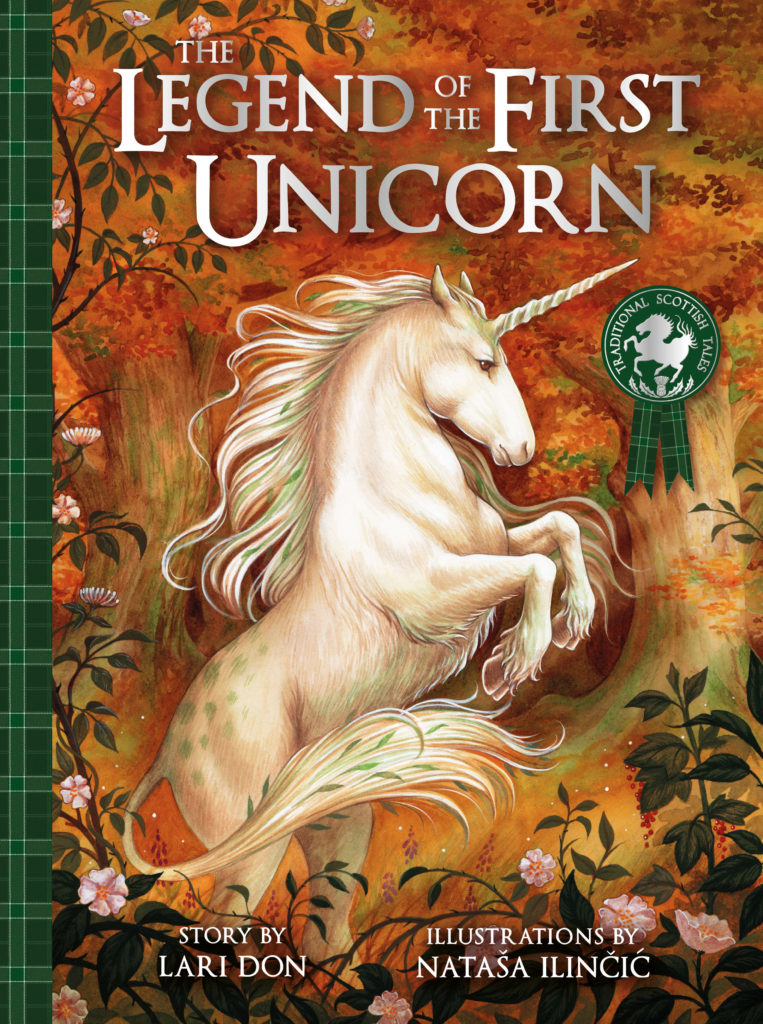
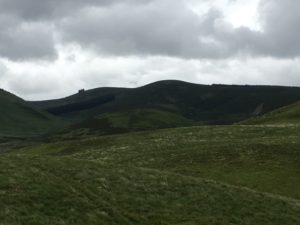

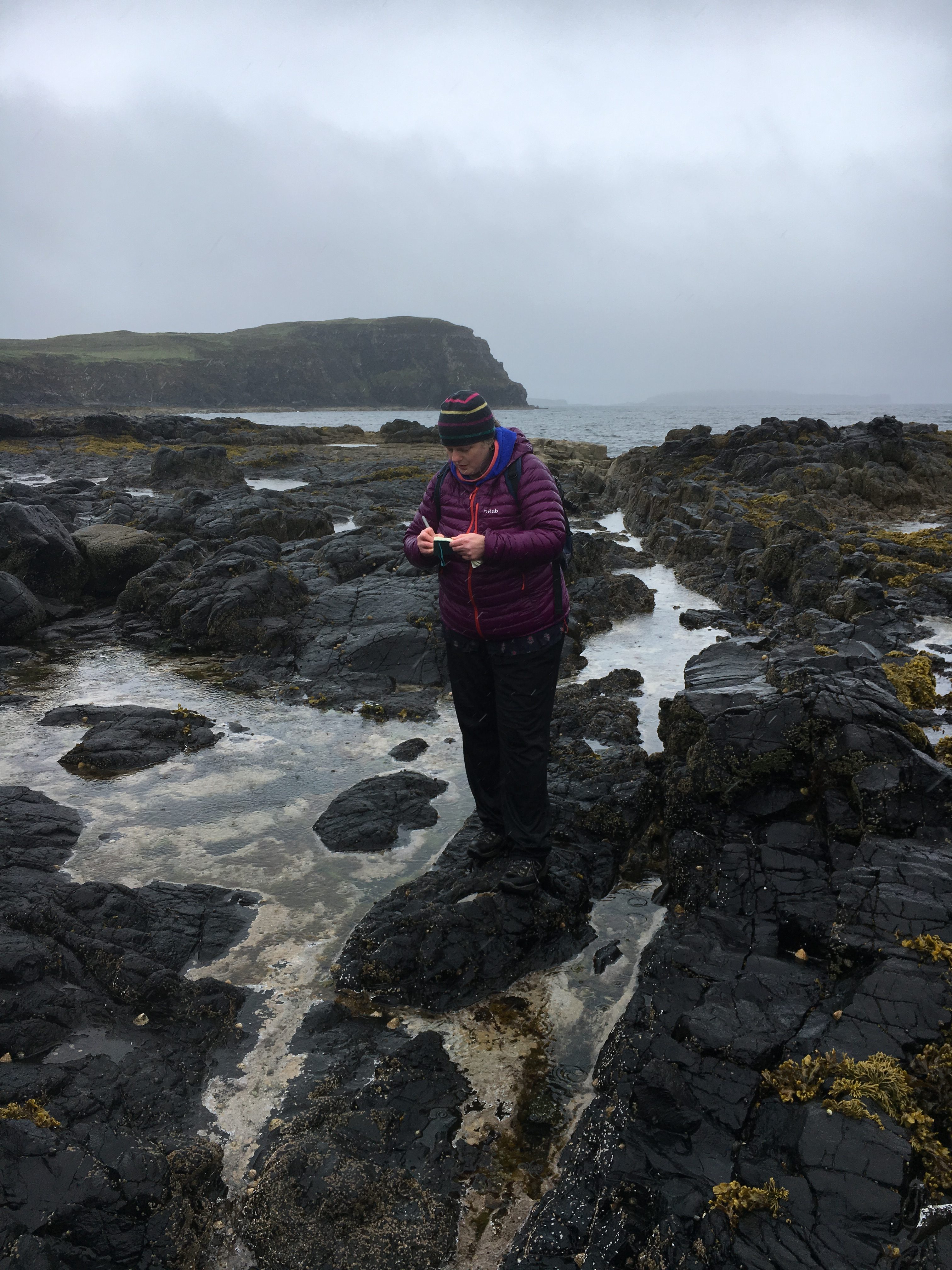
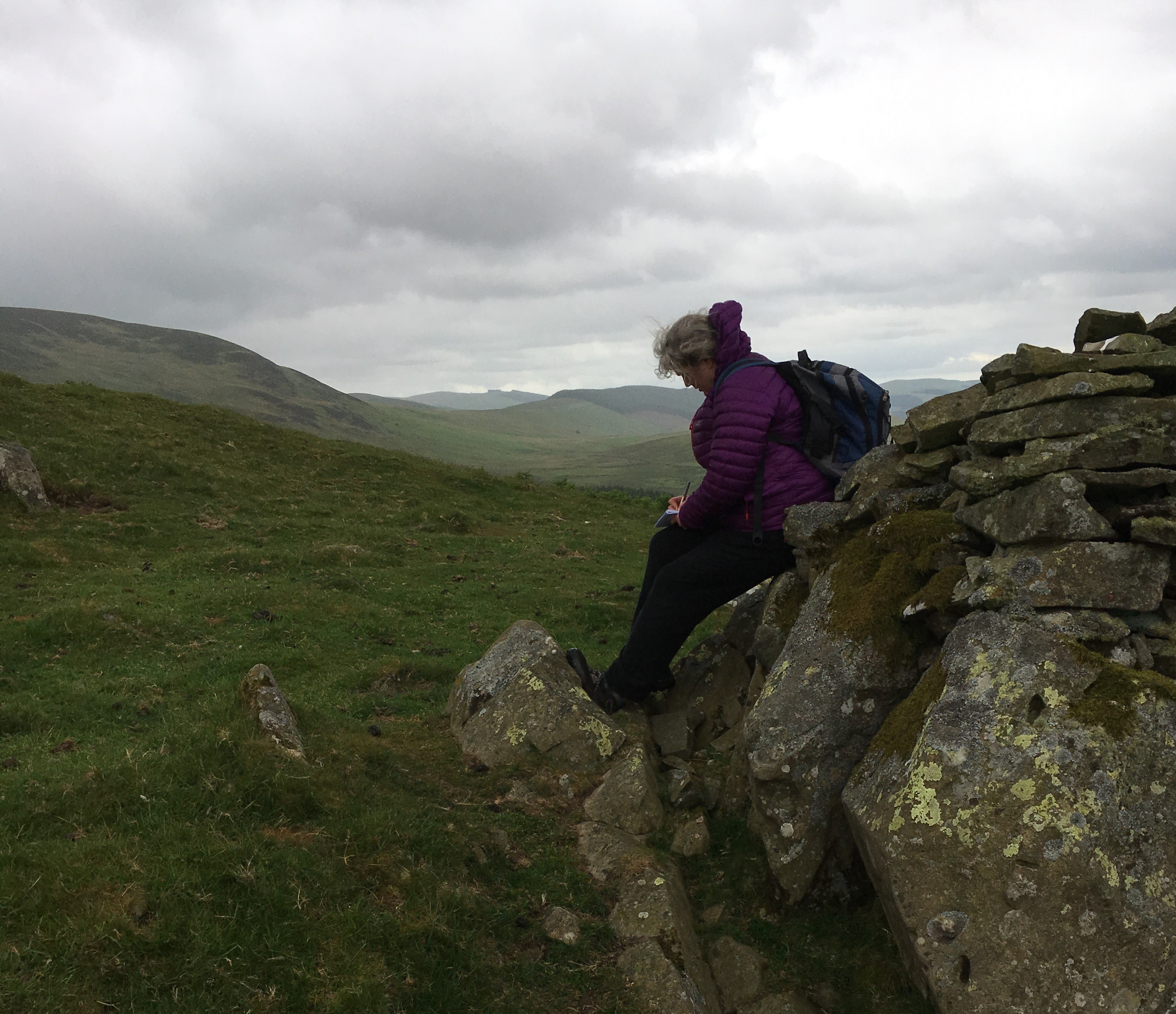
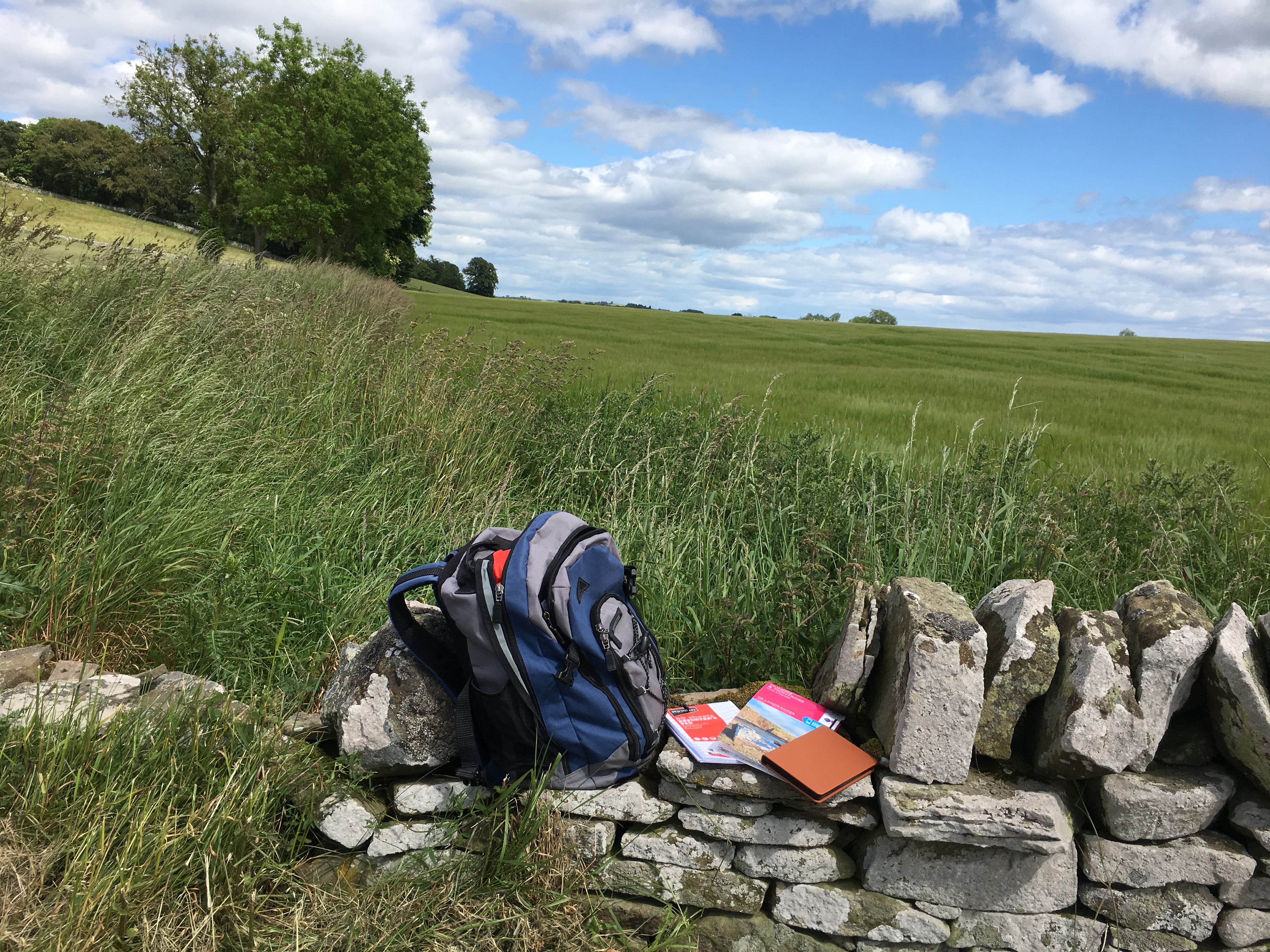
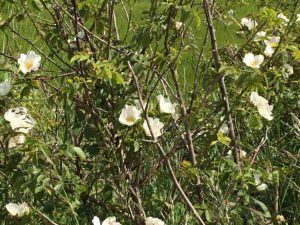
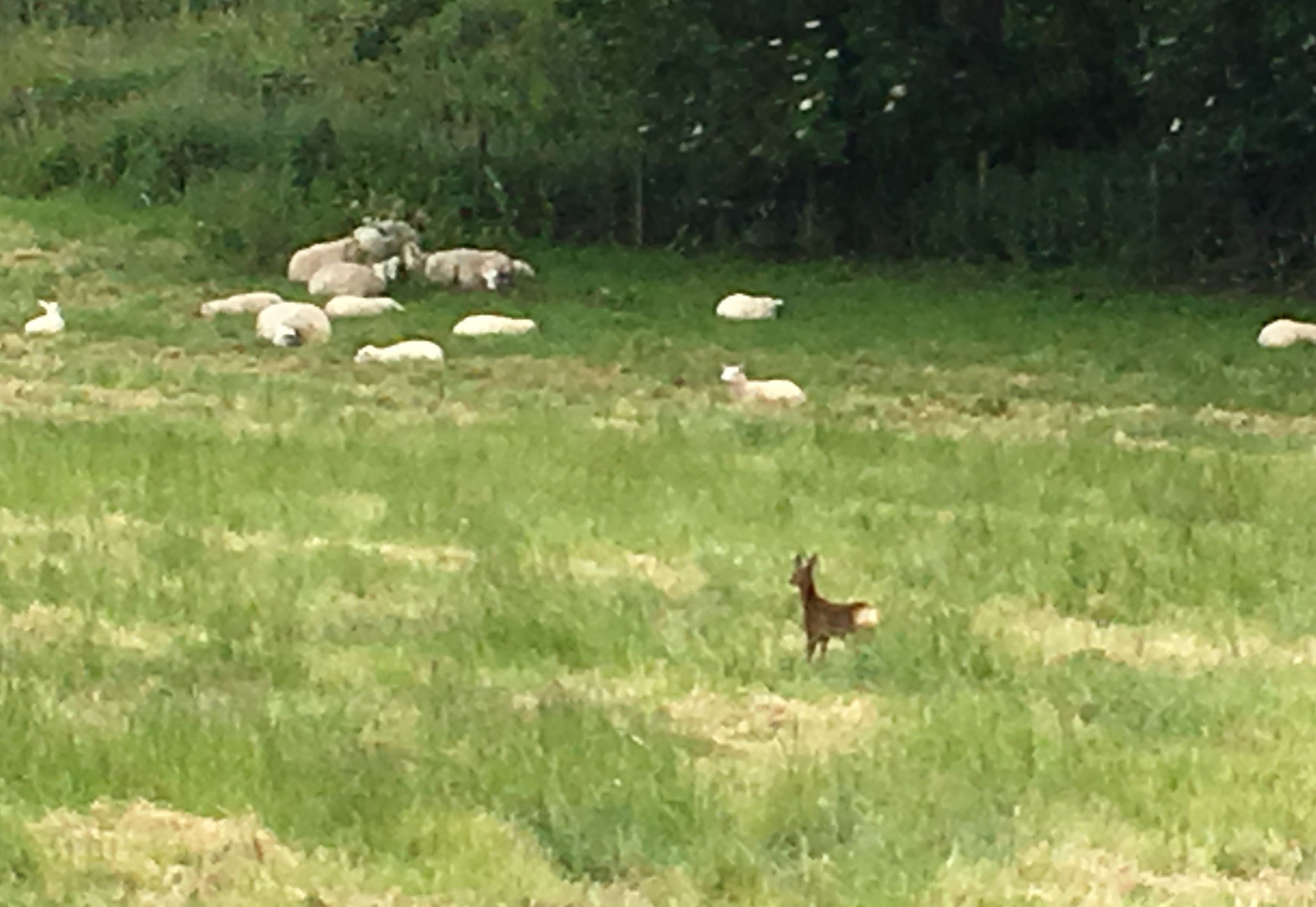
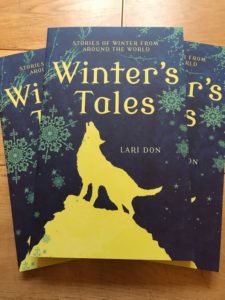
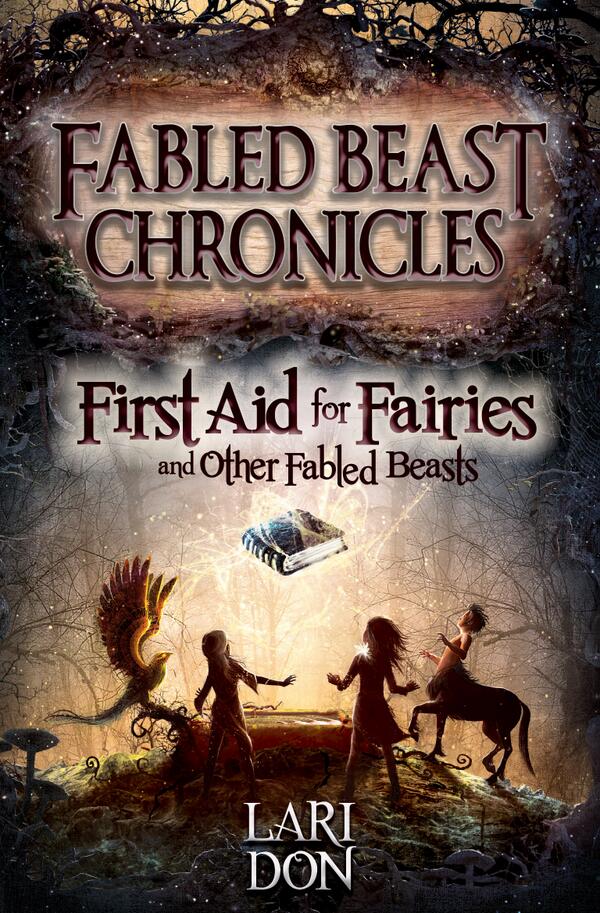
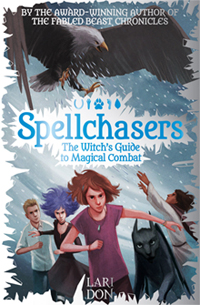
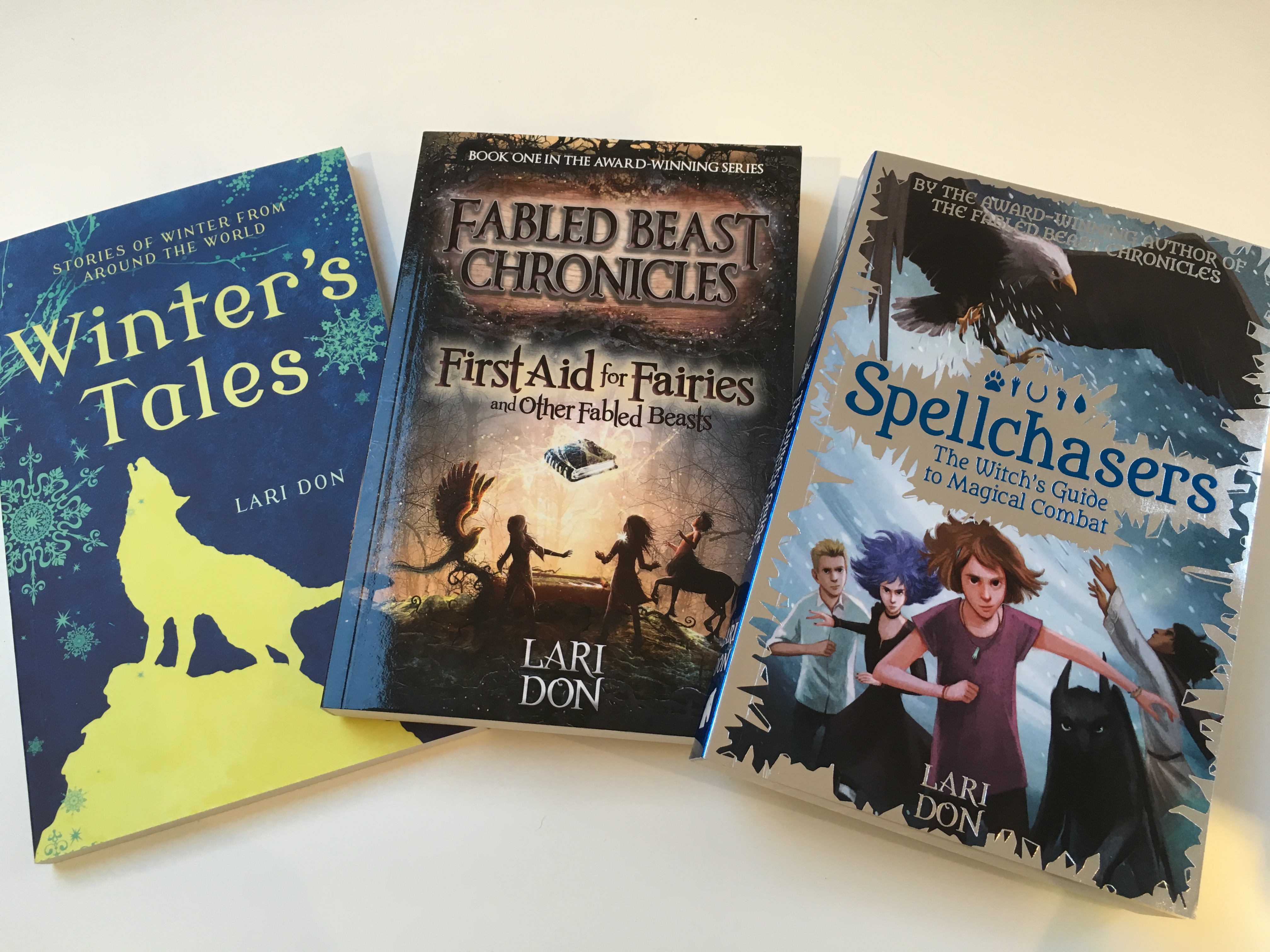
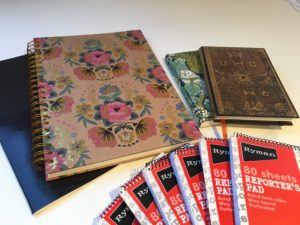
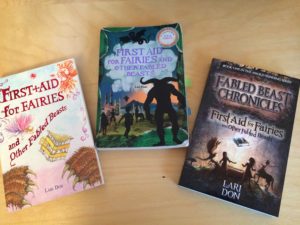
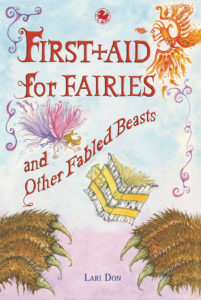
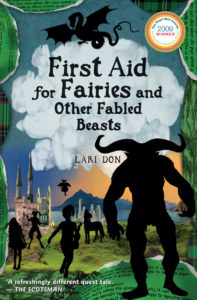

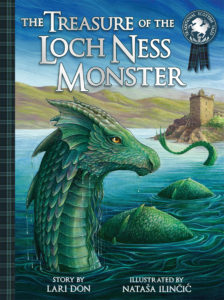
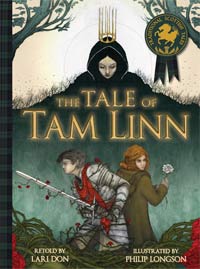
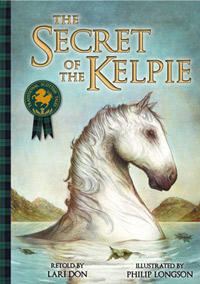
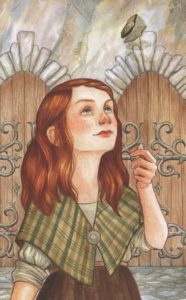
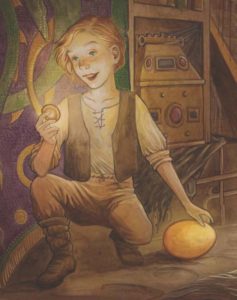
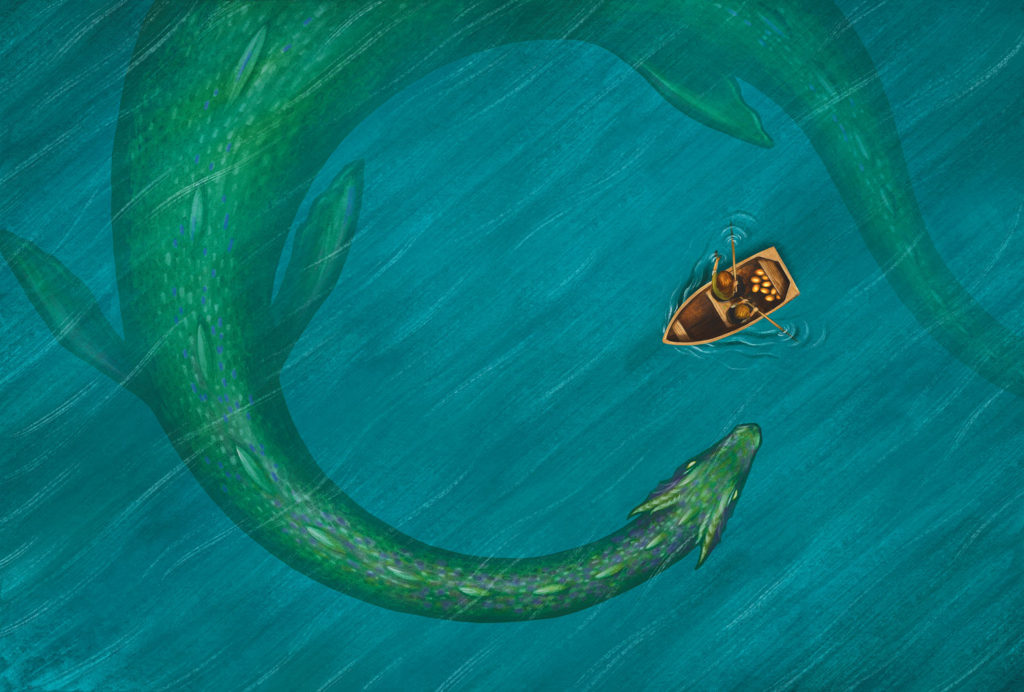
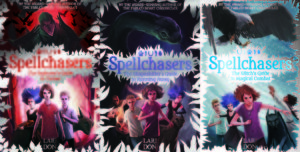
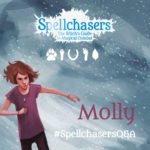
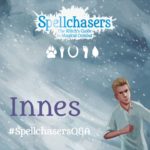
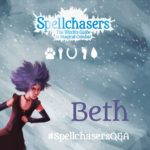
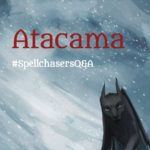
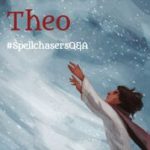
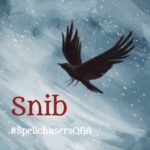
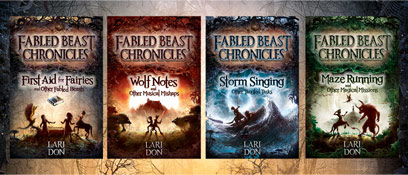
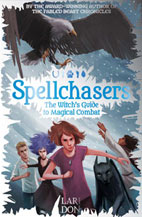
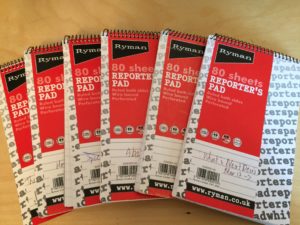
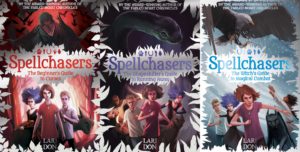
Recent Comments